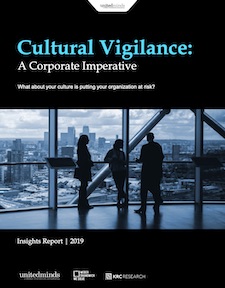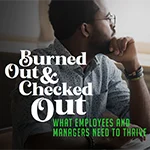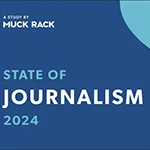 |
| Sarah Clayton |
Weber Shandwick and its United Minds management consultancy are offering companies a way to help assess and prepare for any cultural risks their organizations may face.
The initiative is the result of research the firm conducted in partnership with KRC Research that tracked the conditions most associated with cultural crises.
More than one in five of the 1,000 full-time employees surveyed (22 percent) said their company has recently been through such culture-related crises as top leadership being accused of significant wrongdoing or the company being criticized about sexual harassment or racist behavior. Almost a third (30 percent) say that they expect a cultural crisis to affect their companies in the next two years.
In addition, only 28 percent of respondents said their employers’ values and actions are aligned.
 |
To help companies get a handle on the threats they face, the Cultural Vigilance suite includes what it calls the Culture Risk Check, an auditing tool which assesses organizations against six key indicators predictive of cultural risk. Those six indicators are: inadequate investment in people; lack of accountability; lack of diversity, equity and inclusion; poor behavior at the top; high-pressure environments; and unclear ethical standards.
The Culture Risk Check gives companies a scorecard that assigns severity status to each indicator and helps boards and CEOs identify hotspots that need to be addressed before crisis strikes. In M&A situations, the tool helps acquiring companies understand the cultural issues they’re taking on and helps bring to light cultural compatibilities and incompatibilities between the two companies.
Cultural Vigilance then offers a roadmap geared toward lessening those risks. CulturePrep includes planning and training services to ensure the right processes, tools and capabilities are in place to manage through known cultural issues. CultureShift, the firm’s culture change methodology, aids organizations in nurturing the specific attitudes, beliefs and actions that support business strategy and guard against risk.
“It’s not enough for companies to go into action when crisis hits – organizations today need to shift from reactive reputation repair to proactive cultural auditing and constant preparedness, while ensuring they are fostering cultures that are in line with their stated values,” said Sarah Clayton, executive vice president, United Minds.


 Consumers who once demanded convenience now require consistent, multi-channel experiences that cater to them at every point. Brands must have a clear, audience-appropriate, and channel-specific voice across all platforms.
Consumers who once demanded convenience now require consistent, multi-channel experiences that cater to them at every point. Brands must have a clear, audience-appropriate, and channel-specific voice across all platforms. Employees at U.S. companies are experiencing high levels of burnout, but managers are lagging behind when it comes to their awareness of the problem
Employees at U.S. companies are experiencing high levels of burnout, but managers are lagging behind when it comes to their awareness of the problem Brand has a powerful effect on a company’s valuation, but the level of brand understanding in the investment community leaves a lot to be desired, according to a new study from Brodeur Partners, Interbrand and NewtonX.
Brand has a powerful effect on a company’s valuation, but the level of brand understanding in the investment community leaves a lot to be desired, according to a new study from Brodeur Partners, Interbrand and NewtonX. AI may still be viewed with a wary eye by most media pros, but its use is growing, according to a new study from Muck Rack.
AI may still be viewed with a wary eye by most media pros, but its use is growing, according to a new study from Muck Rack. A new study from Walker Sands says that some marketers have been putting the cart before the horse when it comes to the relationship between marketing channels and business outcomes.
A new study from Walker Sands says that some marketers have been putting the cart before the horse when it comes to the relationship between marketing channels and business outcomes.


 Have a comment? Send it to
Have a comment? Send it to 
No comments have been submitted for this story yet.